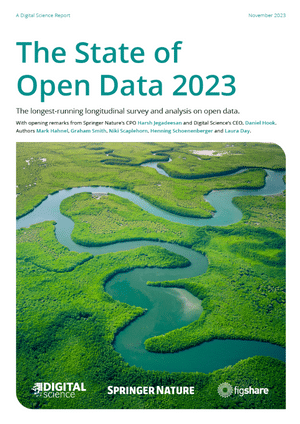
Supporting research integrity
Research integrity has emerged as a dominant theme in scholarly communications. Challenges around Generative AI, paper mills and fake science will only get thornier and more complex.
On this page

How can I champion open and transparent research?
Ensuring research data is shared in a trusted repository and is as FAIR (Findable, Accessible, Interoperable and Reusable) as possible works to bolster the integrity of published research.
Implementing reliable repository infrastructure for your researchers means research data can always be as open as possible (or as closed as necessary) and truly available, not just ‘available on request.’
How can I prevent researchers from using retracted research?
Articles can be retracted years after publication, due to problems such as research errors, plagiarism, data fraud, or fabrication. Ensure your researchers can easily avoid retracted research with Papers.
Papers imports data from Retraction Watch, an initiative of the nonprofit Center for Scientific Integrity, to track and document research that has been retracted by either the author or publisher. If research is retracted, your Papers library will automatically update the article’s metadata to reflect the retraction warning – making it easy for researchers to avoid retracted literature.
Research integrity is a towering and sustained problem for all stakeholders in the research community, and unfortunately this leads to public mistrust in research and its funding. It’s estimated that in the US alone, tens of billions of dollars are spent on results that are neither reproducible nor transparent.
Leslie McIntosh | VP Research Integrity | Digital Science
Latest insights
Our latest insights delivered straight to your inbox
Sign up for our newsletter to stay updated on the latest developments in the research ecosystem, as well as insights into the latest news from Digital Science.








